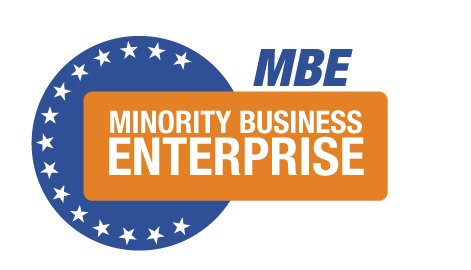What is a Minority Business Enterprise (MBE)?
The classification of companies focuses on the types of services or products they provide to the society at the local, national and international levels, and also on their profit or nonprofit activities. At present, there is another way of classification based on issues related to the conditions or types of owners or shareholders of companies. Sometimes those owners are members of the so-called "minorities."
The term "minority" refers to minority populations in relation to the total population of a nation and is characterized by ethnicity, identity national, language or religion different to the general population. Usually, they want to preserve and promote its identity as a group. Are also considered "minorities" those groups, that being not numerically weak, are in a non-dominant position and in disadvantage at making decisions of importance in terms of social, political and economic development. A well-known example of this type of “minorities” was the blacks in South Africa apartheid.
The rights of "minorities" are established, since 1992, by the United Nations in the United Nations Declaration on rights of persons belonging to national or ethnic, religious and linguistic minorities [1]. Among the rights are included the effective participation in public life, especially in decision-making processes, and the demand that take into account the legitimate interests of the persons who constitute the "minorities."
The right to non-discrimination and the right to equality are also guaranteed as well as the possibility to develop and promote intercultural and educational activities at local and national levels in their language. It is important to take into account the considerations and concerns regarding the economic welfare of the population, promoting the generation of income through employment and the exercise of business.
In the United States, to facilitate and promote the opening of enterprises by the “minorities," it has been established a type of company that is known officially as a Minority Business Enterprise (MBE). This type of company must be physically based in the United States or its territories. They are for-profit companies in which it is required that at least 51% of its shares be owned by one or more citizens or residents of the United States. These citizens most are members of "minorities" as recognized by the Small Business Administration (SBA), in the 8(a) Business Development Program [2], which is one of its federal programs aimed to the development of the business. "Minorities" established as eligible are Native Americans, Hispanic Americans, Black Americans and Asians Americans from the East and West Asia. These owners should take control of the regular activities of operation and management of the company.
In addition to these types of companies listed by the Government, others are favoring more disadvantaged groups, such as the Woman Business Enterprise (WBE), the Small Business Enterprise (SBE), the Disadvantaged Business Enterprise (DBE) and Veteran Disadvantaged Business Enterprise (DVBE).
Through specific government programs for such enterprises, it is promoted the inclusion of these groups in the process of obtaining business contracts in which they historically have been excluded. These programs are based on the fact that when large companies receive an important contract, they require a certain amount of outsourcing companies for specific purposes. The government then promotes the subcontracts to be offered to companies established by the SBA, and so the main contractors are provided with incentives for giving subcontractors guidance and advice for the success of their business. With this, fair access to contracting opportunities is open to business groups able to meet high standards of performance and quality at competitive prices and with legitimate business criteria.
In addition to these types of companies listed by the Government, others are favoring more disadvantaged groups, such as the Woman Business Enterprise (WBE), the Small Business Enterprise (SBE), the Disadvantaged Business Enterprise (DBE) and Veteran Disadvantaged Business Enterprise (DVBE).
To qualify for these government programs is necessary for these companies of specific groups to obtain a certification. These certifications are aimed to ensure that companies comply with the requirements set by the SBA. Specifically, an EBM at order with the certification criteria is entitled to programs and services offered by the National Minority Supplier Development Council (NMSDC) [3] as appearing in its national database, Minority Business Information System (MBISYS) [4]. This database is accessible to all national corporate members providing the MBE with the opportunity to offer their products and services. Additionally, any MBE can be certified in the Agencies of Regional Certification which are accepted by the NMSDC and get the services of Regional Councils.
P.S. Harvard Law School students help to struggle small-time entrepreneurs flourish.
http://news.harvard.edu/gazette/story/2016/01/taking-people-to-where-they-want-to-be/
REFERENCES
1.- http://www.ohchr.org/Documents/Issues/Minorities/Booklet_Minorities_English.pdf
2.- https://www.mbda.gov/news/blog/2012/03/what-8a-business-development-program
3.- http://www.nmsdc.org/about-nmsdc/
4.- http://www.nmsdc.org/nmsdc-home.html
.jpg)